By Matt Leighninger
“We need to figure out how to strengthen democracy in between elections,” said a Member of Congress at a parliamentary exchange with legislators from Argentina, Brazil, Germany, and the European Union. It was a sentiment – and a quest – shared by all the elected officials, staff, and civil society representatives in the packed meeting room at the U.S. Capitol on November 16th.
The Legislators’ Forum on Innovations in Democracy was organized by the National Conference on Citizenship (NCoC), a nonprofit chartered by Congress in 1953 to strengthen civic life in America, and the Institute for Democratic Engagement & Accountability (IDEA) at the Ohio State University. A range of organizations helped to design, inform, and recruit legislators for the event, including the newDemocracy Foundation in Australia, ifok in Germany, staff members for the Senate of Brazil and Senate of Argentina, and the Brennan Center and Berggruen Institute in the U.S.
The forum brought together 12 U.S. members of Congress with senators, members of national parliaments, members of the EU Parliament, and senior staff from the other countries, which also included France, Greece, Italy, and the U.K. Forum participants shared findings and stories from their work to engage community members in more productive, civil, and meaningful ways.
Weathering storms in the U.S. and Brazil
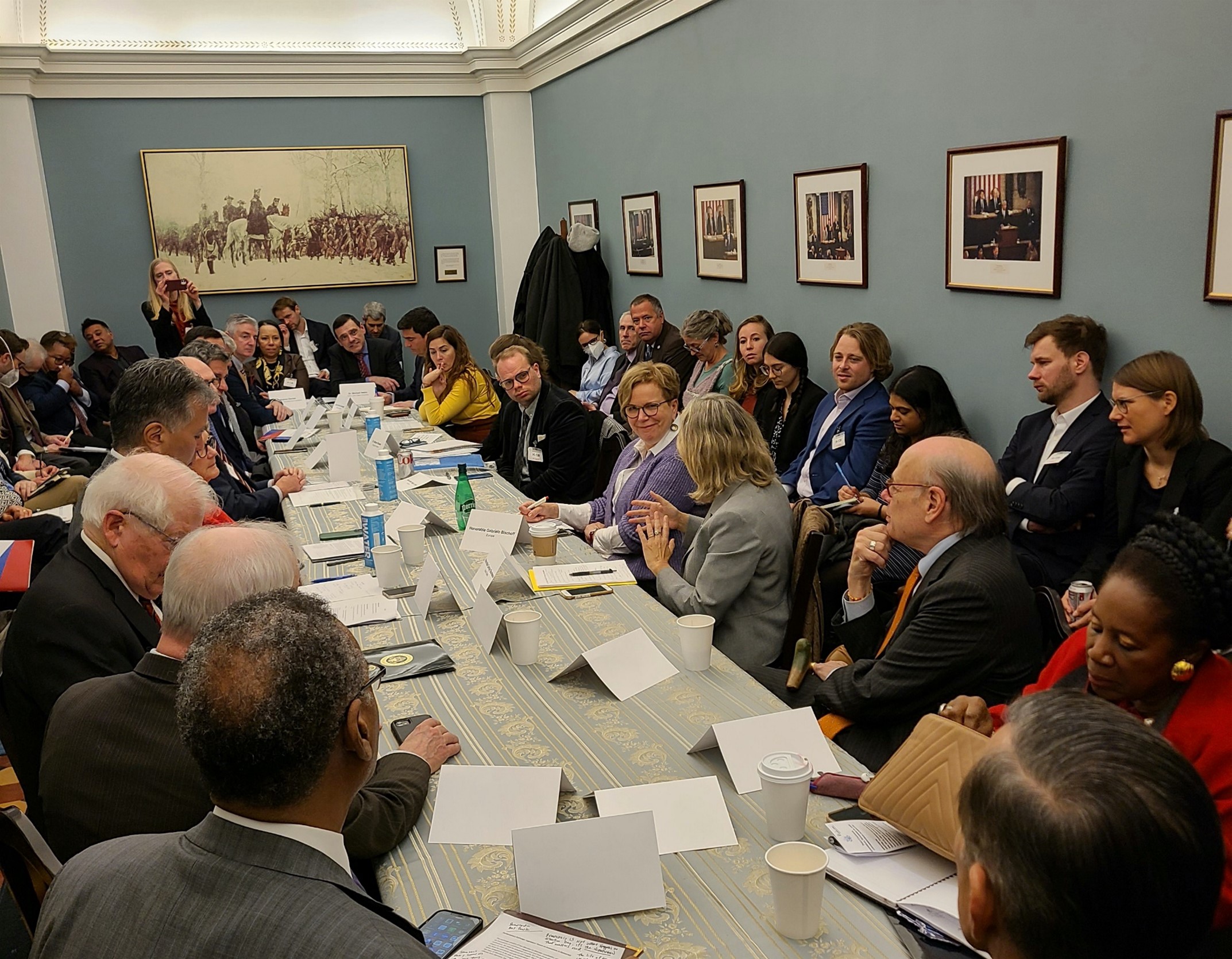 Participants from Brazil and the U.S. reflected on the recent experience of national elections in both countries. Brazilian Senator Humberto Costa argued that his country was able to conduct an election and avoid a coup attempt precisely because of its strong civic infrastructure, which has been built from the local level up. This infrastructure includes local health councils, participatory budgeting processes, national policy conferences, and online platforms.
Participants from Brazil and the U.S. reflected on the recent experience of national elections in both countries. Brazilian Senator Humberto Costa argued that his country was able to conduct an election and avoid a coup attempt precisely because of its strong civic infrastructure, which has been built from the local level up. This infrastructure includes local health councils, participatory budgeting processes, national policy conferences, and online platforms.
Defeated President Jair Bolsonaro urged his supporters to protest and to gather outside the homes of Brazil’s top generals to press for military intervention, but one month out from the election, the bulk of the population continues to support a peaceful transition of power to President Lula.
“Taxis, buses, and squirrels”
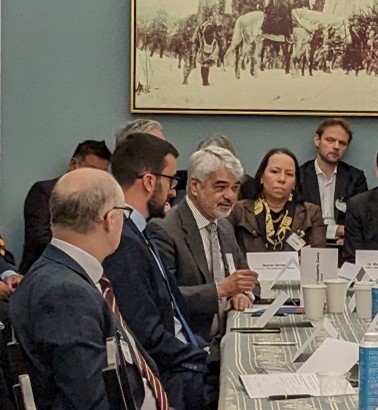
The democracy innovations featured at the forum represented a diverse array of programs, initiatives, and structures. The Argentinian delegation presented their Open Law Portal, a platform that allows political parties to upload their draft initiatives and receive input and feedback from the public. Chris Shaw, Clerk to the House of Commons, discussed the Deliberative Town Halls by IDEA in the U.K., U.S., and other countries.
Gabriele Bischoff, Member of the EU Parliament, and Jacob Birkenhäger of the German organization ifok described the deliberative plenaries involving 800 randomly selected EU citizens that were held as part of the Conference on the Future of Europe. Three Brazilian senators outlined the e-cidadania process, which has allowed 40 million citizens to suggest ideas for bills, sign petitions for bills they support, and participate remotely in public meetings and confirmation hearings. Forum participants also discussed citizen assemblies, AI- supported engagement tools, and other democracy innovations.
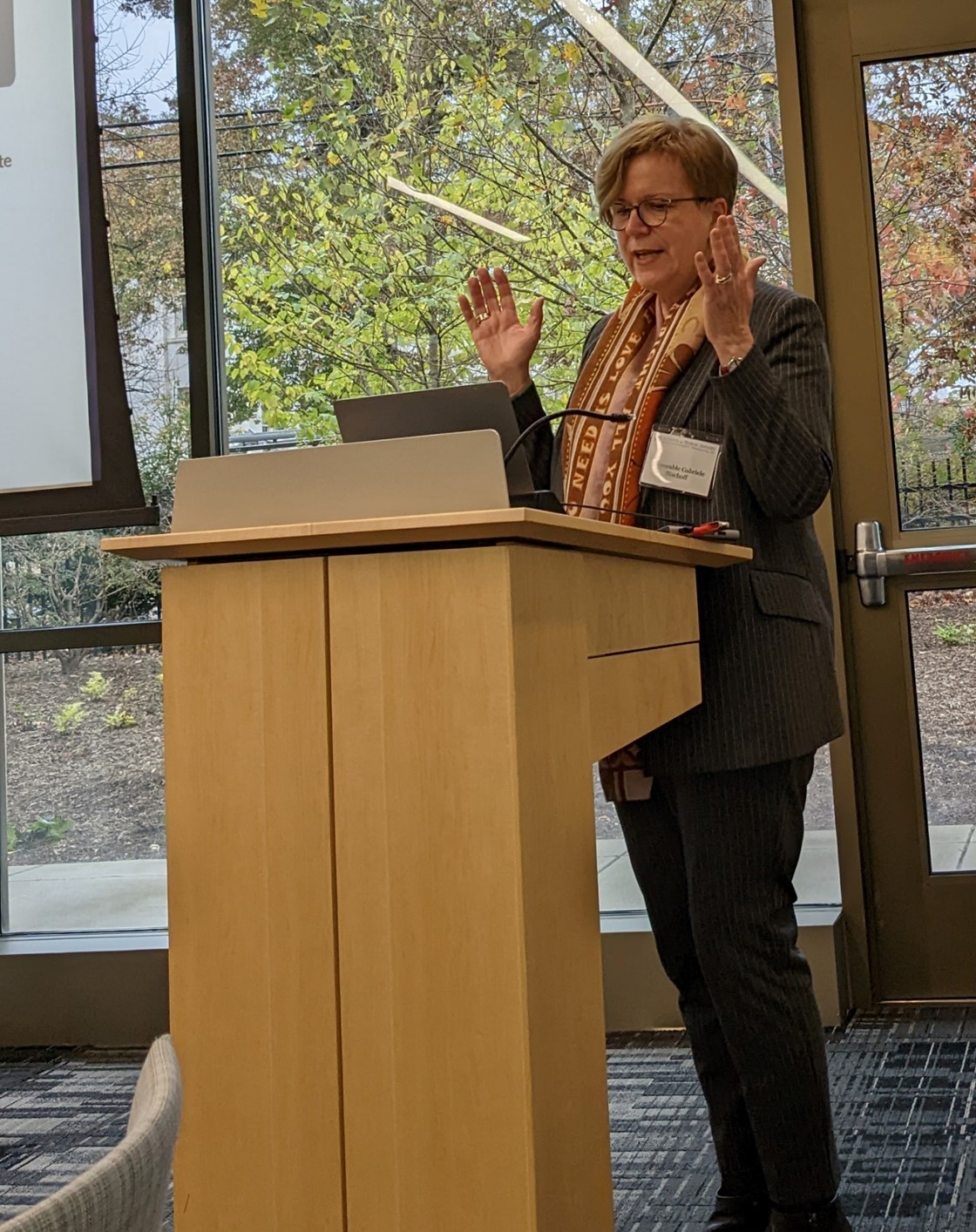 Helge Lindh, Member of the German Bundestag, provided an analogy for categorizing these innovations using things he saw in Washington. Some of the innovations are like taxis, he said, in that they provide individuals with information or opportunities to give input – they are fast and convenient and take you wherever you want to go. Some are like buses, in that you are riding with other people and you negotiate over who will sit where, share information about where the bus is stopping – you are participating as part of a group, with all the advantages and challenges that entails. And Lindh pointed out the squirrels of DC: they don’t ride taxis or buses but are very curious about everything and always watching. They are the ones monitoring corruption and making sure procedures are followed. Practitioners might call these “thin,” “thick,” and “watchdog” forms of public engagement, but Lindh’s analogy presented the categories with more colorful imagery.
Helge Lindh, Member of the German Bundestag, provided an analogy for categorizing these innovations using things he saw in Washington. Some of the innovations are like taxis, he said, in that they provide individuals with information or opportunities to give input – they are fast and convenient and take you wherever you want to go. Some are like buses, in that you are riding with other people and you negotiate over who will sit where, share information about where the bus is stopping – you are participating as part of a group, with all the advantages and challenges that entails. And Lindh pointed out the squirrels of DC: they don’t ride taxis or buses but are very curious about everything and always watching. They are the ones monitoring corruption and making sure procedures are followed. Practitioners might call these “thin,” “thick,” and “watchdog” forms of public engagement, but Lindh’s analogy presented the categories with more colorful imagery.
A growing body of research
One inspiration for the forum, and source of knowledge for forum participants, was “Public Engagement in the Work of Parliament,” the Global Parliamentary Report from 2022, produced by the International Parliamentary Union and directed by Maya Kornberg of the Brennan Center.
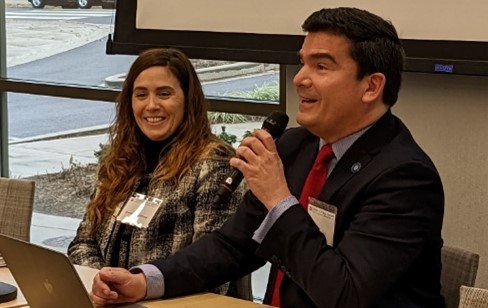 The Global Parliamentary Report summarized and complemented many other recent studies on democracy innovations, which were compiled in the forum resource list. This growing body of research examines worldwide dissatisfaction with conventional forms of democracy as well as optimism about new democratic reforms. “It is time for a major reset – a paradigm shift in democracy,” wrote Marjan Ehsassi, Future of Democracy Fellow at the Berggruen Institute, in the framing document for the forum. “Around the world, citizen disengagement from political institutions is pervasive and palpable. While voter turnout is higher in some cases, declining party loyalty and citizen distrust in elected representatives is at an all-time high, and polarization continues to threaten the fabric of our civil society.” Drawing on her comparative research into deliberative assemblies in France, Belgium, Canada,and the United States, Ehsassi provided insight and practical design and implementation guidance on ways to increase participants’ levels of knowledge, enthusiasm, political engagement, and their sense of community and meaningful voice.
The Global Parliamentary Report summarized and complemented many other recent studies on democracy innovations, which were compiled in the forum resource list. This growing body of research examines worldwide dissatisfaction with conventional forms of democracy as well as optimism about new democratic reforms. “It is time for a major reset – a paradigm shift in democracy,” wrote Marjan Ehsassi, Future of Democracy Fellow at the Berggruen Institute, in the framing document for the forum. “Around the world, citizen disengagement from political institutions is pervasive and palpable. While voter turnout is higher in some cases, declining party loyalty and citizen distrust in elected representatives is at an all-time high, and polarization continues to threaten the fabric of our civil society.” Drawing on her comparative research into deliberative assemblies in France, Belgium, Canada,and the United States, Ehsassi provided insight and practical design and implementation guidance on ways to increase participants’ levels of knowledge, enthusiasm, political engagement, and their sense of community and meaningful voice.
Michael Neblo, who gave the elected officials an overview of the research on innovations, said that “The goal of the workshop and parliamentary exchange was to provide lawmakers from all the different countries a chance to learn directly from their peers about some of these innovations – the research on their impacts, the contexts in which they work best – as well as for researchers and practitioners to learn more about the projects and how we might either refine our own processes or collaborate with others.”
Encouraging learning and partnership across borders
In addition to sharing and growing the research base, the forum was intended to strengthen connections between legislators in different countries who are advocates for democracy innovation. The Bertelsmann Foundation, a nonprofit think tank dedicated to a “strong and lasting transatlantic relationship,” hosted the forum participants for a welcome dinner. The newDemocracy Foundation provided support to the forum organizers and advice based on a previous convening in Brussels. 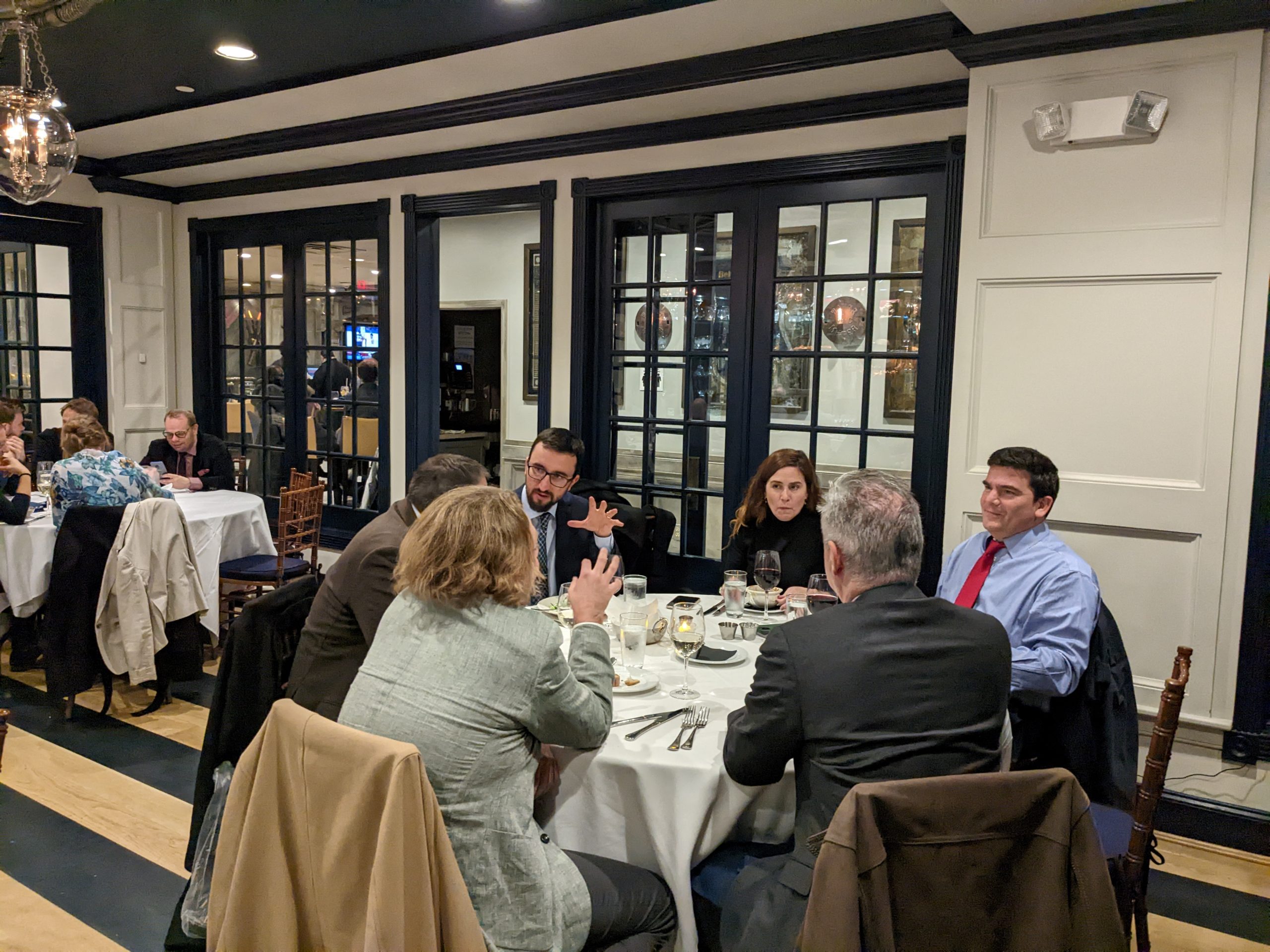
The Center for Congressional and Presidential Studies at American University hosted the workshop day of the forum at Constitution Hall on their campus. Center director David Barker gave opening remarks on the current conditions for democracy in the U.S. A range of democracy innovation organizations and thinkers added to the experiences and expertise in the room; they included IFOK and Mehr Demokratie from Germany and U.S.- based nonprofits such as People Powered, the Center for New Democratic Processes, Voice of the People, Demos, and the Kettering Foundation.
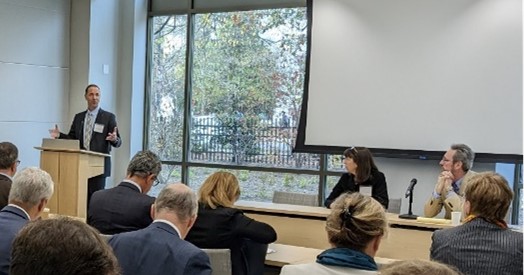 A feature of the workshop day was a session on the 2023 Summit for Democracy being organized by the United States. Ambassador Lisa Peterson described the State Department’s plans and the process for drafting specific commitments for strengthening democracy that participating nations can consider. Peterson and Matt Leighninger discussed the need to welcome draft commitments from many sectors and many parts of the world.
A feature of the workshop day was a session on the 2023 Summit for Democracy being organized by the United States. Ambassador Lisa Peterson described the State Department’s plans and the process for drafting specific commitments for strengthening democracy that participating nations can consider. Peterson and Matt Leighninger discussed the need to welcome draft commitments from many sectors and many parts of the world.
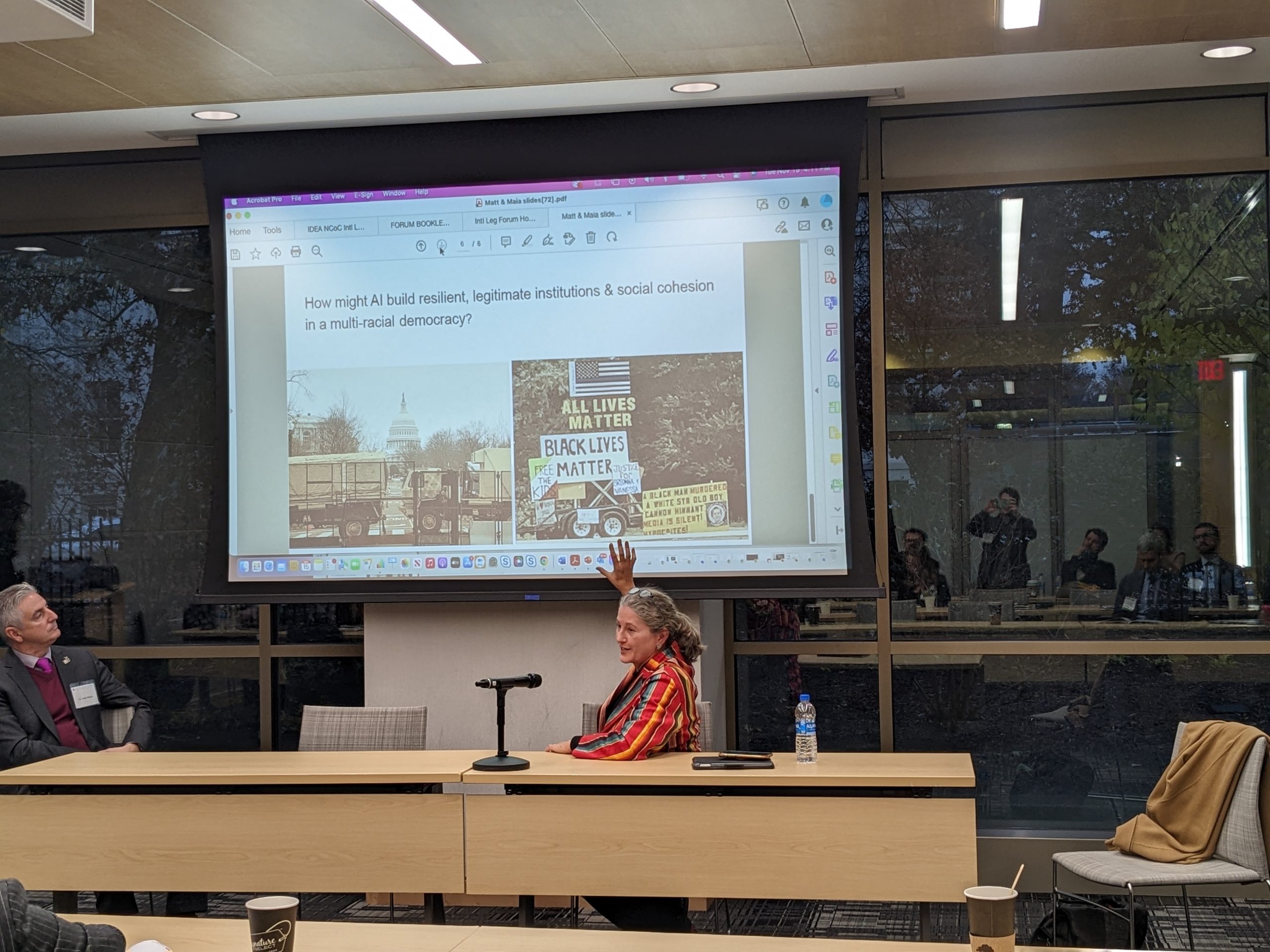 In addition to the digital innovations presented by the Argentine and Brazilian delegations, a preview of the next wave of technological changes for parliaments was provided by Fotis Fitsilis, of the Scientific Service of the Hellenic Parliament (Greece), and by Lorelei Kelly of the Beeck Center for Social Impact and Innovation at Georgetown University.
In addition to the digital innovations presented by the Argentine and Brazilian delegations, a preview of the next wave of technological changes for parliaments was provided by Fotis Fitsilis, of the Scientific Service of the Hellenic Parliament (Greece), and by Lorelei Kelly of the Beeck Center for Social Impact and Innovation at Georgetown University.
Taking innovations to the Hill
Sharon Davies, President of the Kettering Foundation, opened the parliamentary exchange on Capitol Hill by noting how citizens around the world felt that their voices were not being heard. One member of Congress spoke about the efforts of the U.S. to aid democracies around the world and welcomed the opportunity to expand learning “in both directions.”
During the session, which was moderated by Marjan Ehsassi, other members of Congress described their efforts to engage authentically with constituents, despite extreme polarization and the tendency for some lawmakers to attack long-term democratic institutions for short-term gain. Representatives from the other delegations spoke of the challenges in their own countries and how they attempted to preserve and rebuild trust in democracy. 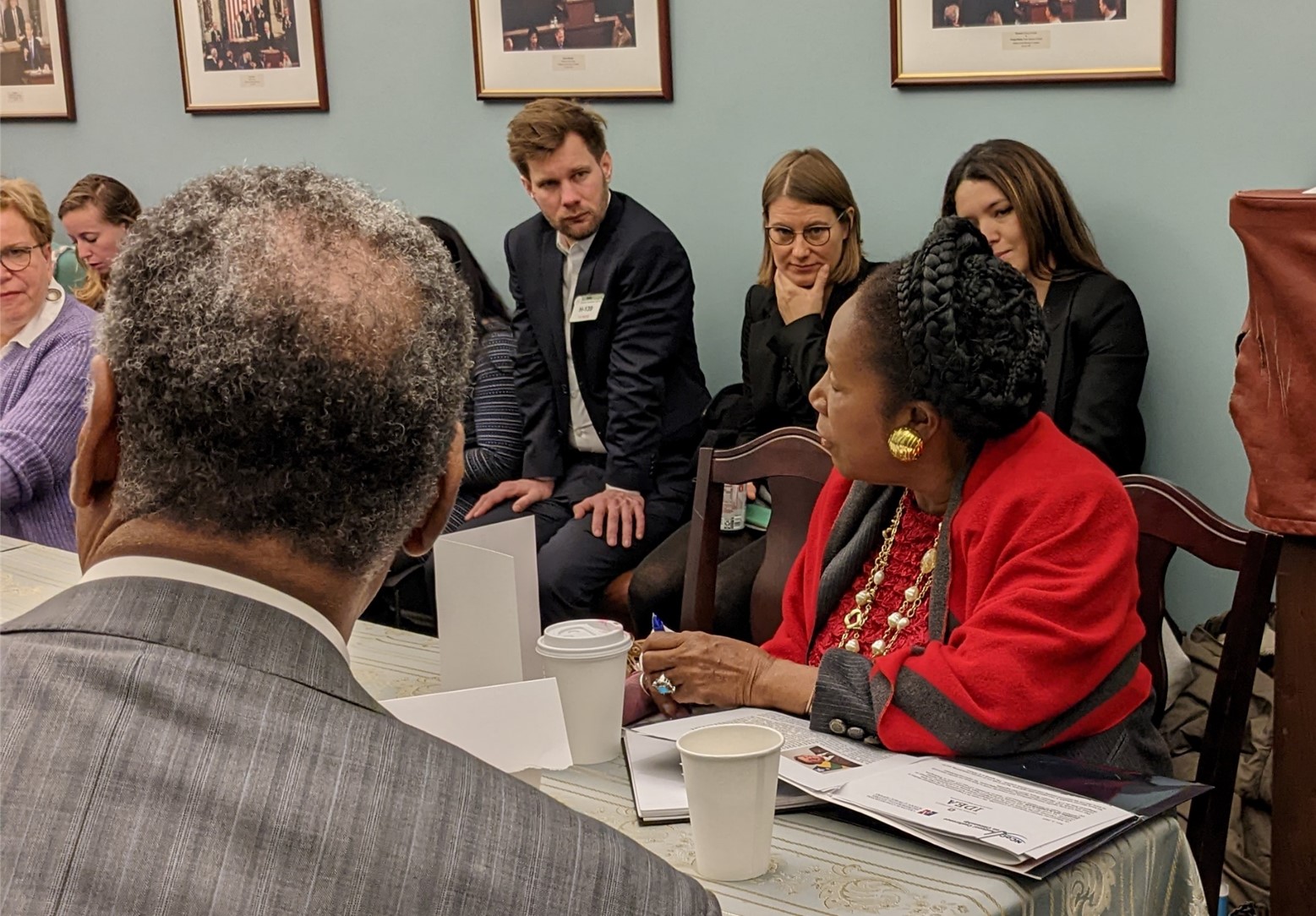
U.S. Representative Ed Perlmutter of Colorado, one of the members of Congress who participated in the exchange, mentioned it the following day during a meeting of the Select Committee on the Modernization of Congress as a great opportunity to learn about international best practices for strengthening Congress as an institution.
Many directions for innovation
There are a number of ways in which the forum may contribute to democracy innovation, both in the U.S. and in other countries. The Summit for Democracy represents one opportunity; some of the forum participants are already involved in the process of drafting commitments.
Legislators and staff from Argentina, Brazil, and Germany all expressed interest in holding follow-up forums in their countries, to continue the momentum and involve colleagues who were unable to come to Washington.
Meanwhile, the organizers of the forum intend to make it an annual event. The second iteration is going to be called the Global Innovations in Democracy parliamentary exchange. The planning for 2022 was begun by Leighninger, who directs the Democracy Innovation project, now housed at the National Civic League, almost one year ago. He and Kornberg began reaching out to colleagues in other countries. Neblo and his colleague at IDEA, Amy Lee, added their own ideas and contacts, and brought in Maia Comeau, who organized many congressional exchanges during her tenure at the German Marshall Fund. The organizing team was rounded out by Ehsassi and NCoC staffers Amy Howell and John Kilcoyne.
“It’s a tremendous effort to get as many members of Congress to attend as we did, especially the week after the election, and for NCoC and the other international organizations to bring the other members of Parliament here for the meeting,” said Neblo. “If our efforts lead to sparking any collaboration or wider adoption of some of these best practices, that’s a real win for all of us working to make democracy stronger.”
There is plenty of work to do. As Ehsassi put it in the forum’s framing document, “To confront challenges like mistrust, polarization, and authoritarianism, we must formulate a vision for a democratic culture that complements our representative systems. In the process, we should explore innovations that recognize economic and political grievances and meaningfully engage with citizens in between elections.”
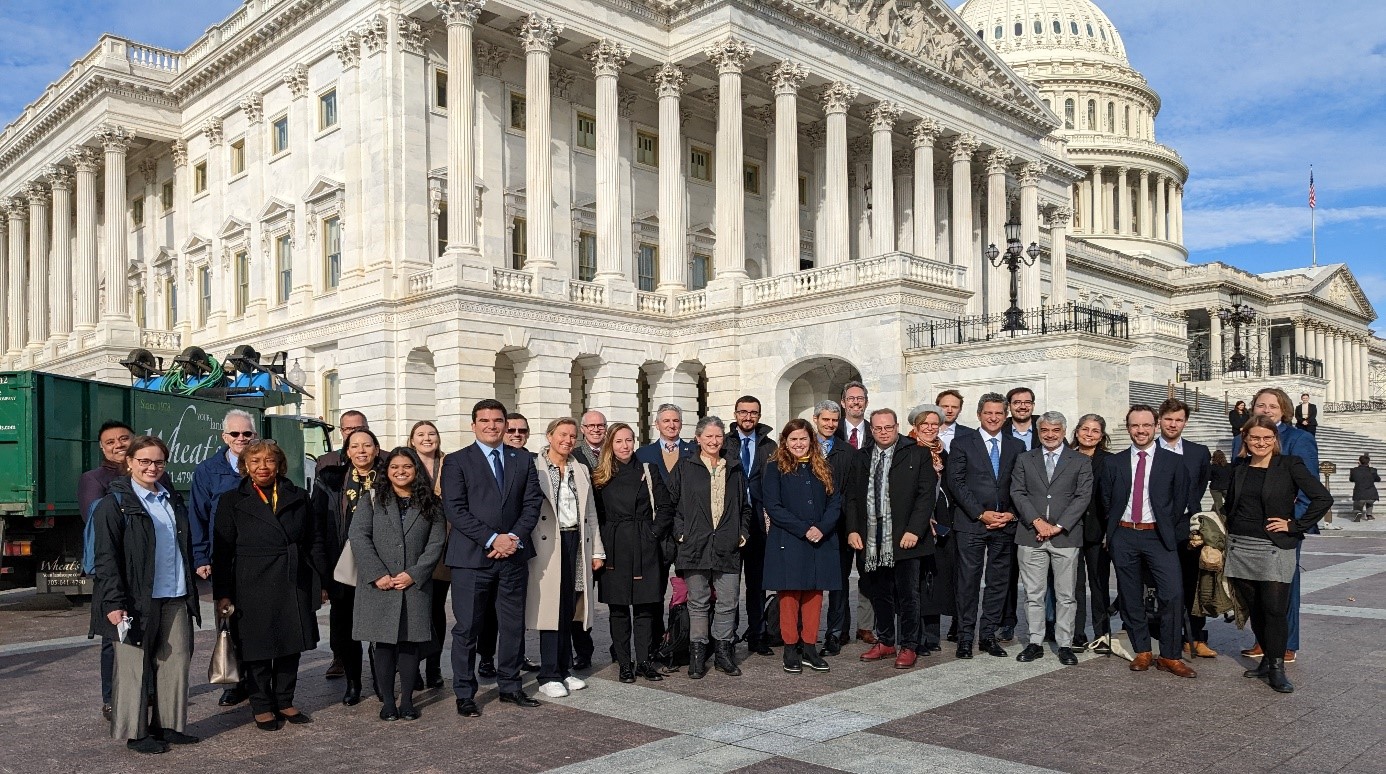
Matt Leighninger is Director, Center for Democracy Innovation at the National Civic League.



